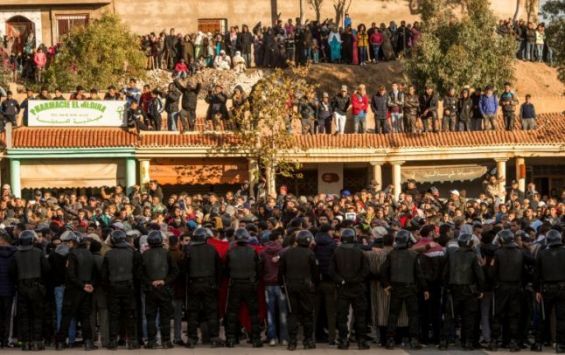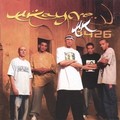On Saturday, 10th of February, Prime Minister Saadeddine El Othmani visited the city of Oujda to present the measures suggested by the government to review the socio-economic development program of the eastern region and to achieve an important road map that would improve the situation of Jerada and its inhabitants. Two days later, the governor of the eastern region held talks with activists from the city to discuss these plans set to mainly create an economic alternative for the population.
However, the governor’s promises have made the situation even more complicated in the city. In fact, opinions differed when it came to deciding what to accept and what to reject and the population, in Jerada, was divided to two clans, one that is willing to give the government another chance and another intending to keep on manifesting.
«Representatives from the neighborhood committees in Jerada met with the governor a few days ago, after the Prime Minister’s visit to the region. He came here to present the proposals of El Othamni’s cabinet, and which are the same as the ones Akhannouch and Rabbah promised in the past», Rachid Essaltani, a resident of Jerada whose father died after suffering for years from the coal workers’ pneumoconiosis, told Yabiladi on Friday.
«The people want an economic alternative, suggesting to solve the problem of water and electricity bills (that have not been paid by the inhabitants since the beginning of their Hirak) is not a new thing», he said adding that the governor’s promises «about creating new plants in the city are vague. If they really want to construct factories in Jerada they need to present a concrete, well studied and reasonable plan with a timeline and a deadline».
Days after the governor’s visit, the situation in the city is still calm, according to Essaltani, who indicated that «some want to give the government time to meet its promises, stopping the demonstrations while others want to carry on with their protests».
«The decision will be taken today. The neighborhood committees will meet and say their final words. I cannot predict what is going to happen next but I am sure there will be an answer by the end of the day».
What is next
On the other hand, and for Houssine Bernat, secretary general of the Moroccan Workers’ Union (UMT)’s regional bureau in Jerada, «activists meet on a daily basis to discuss with the inhabitants what they should do next in five areas of the city, and every evening the committees' representatives meet by their turn to act on what has been said and done during the day».
The trade unionist told Yabiladi that «the committees will hold talks today to discuss the demands of the population, just like every other day».
When asked about his forecasts, regarding the populations’ last decision, Bernat argued saying that no one knows for the moment. «I cannot tell what is going to come next, when they took the streets they did it by their own and no part has pushed them to do it and so it is for their decision, when they will have an answer we will all know at the same time», he concluded.




 chargement...
chargement...












